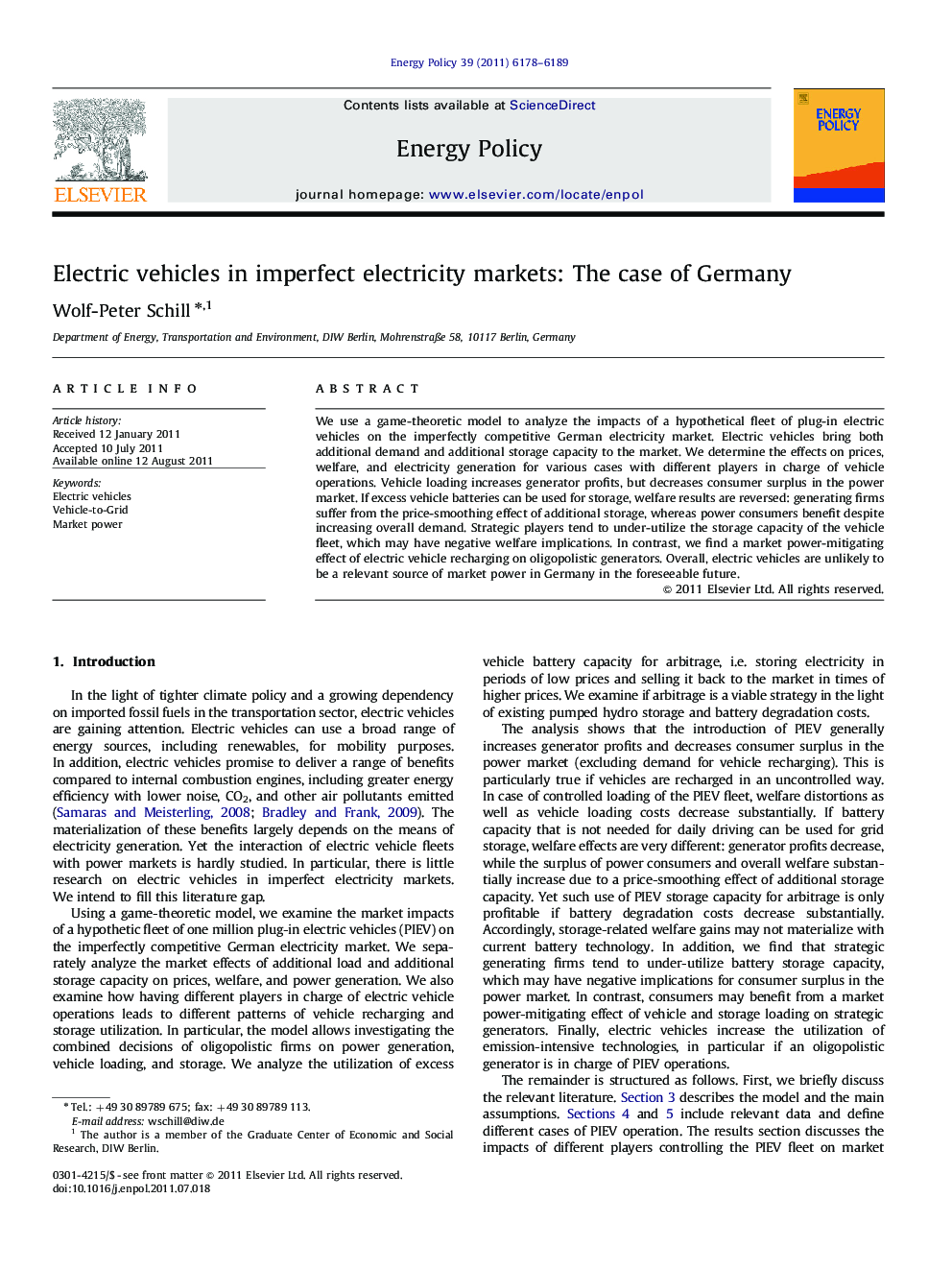| Article ID | Journal | Published Year | Pages | File Type |
|---|---|---|---|---|
| 993058 | Energy Policy | 2011 | 12 Pages |
We use a game-theoretic model to analyze the impacts of a hypothetical fleet of plug-in electric vehicles on the imperfectly competitive German electricity market. Electric vehicles bring both additional demand and additional storage capacity to the market. We determine the effects on prices, welfare, and electricity generation for various cases with different players in charge of vehicle operations. Vehicle loading increases generator profits, but decreases consumer surplus in the power market. If excess vehicle batteries can be used for storage, welfare results are reversed: generating firms suffer from the price-smoothing effect of additional storage, whereas power consumers benefit despite increasing overall demand. Strategic players tend to under-utilize the storage capacity of the vehicle fleet, which may have negative welfare implications. In contrast, we find a market power-mitigating effect of electric vehicle recharging on oligopolistic generators. Overall, electric vehicles are unlikely to be a relevant source of market power in Germany in the foreseeable future.
► We study the effect of electric vehicles on an imperfectly competitive electricity market. ► We apply a game-theoretic model to the German market. ► There is a market power-mitigating effect of vehicle loading on oligopolistic generating firms. ► Consumers benefit from electric vehicles if excess battery capacity can be used for grid storage. ► Electric vehicles are unlikely to be a source of market power in Germany in the near future.
